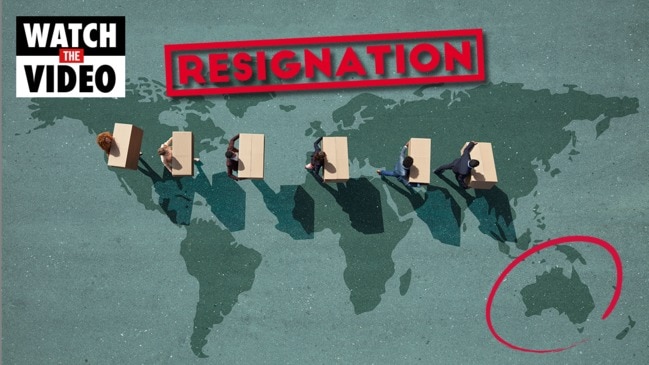Four-day work week could be the answer for Aussies who want to quit
Many people are cutting down their work days - but it could all be for nothing if workers fall into this common trap.

TGIF, right? But what if it was TGIT? With a three-day weekend ahead of you the outlook feels distinctly rosier.
Getting the balance right between work and home has always been important to Aussies. Research from Gartner shows we’re more likely than any other nation to leave a job to chase one that offers a better lifestyle.
In fact, after poor manager quality, work/life balance is the top reason we leave our jobs, ahead of pay (ranked third) and career progression (ninth).
While the pandemic opened the door to a new world of work possibilities, it also saw the direct collision of our professional and personal lives. With your work laptop now a permanent feature of your living room or even bedroom, switching off can be hard.

Two years on from the shift to WFH, Australians are estimated to have worked an additional six hours per week, according to research from the Australia Institute’s Centre for Future Work. The personal cost of this unplanned overtime is significant – burnout is rife and employee engagement has plummeted.
The concept of a four-day work week has long been a hushed dream of many workers, until now. As employers grapple with skyrocketing pay expectations, fierce competition for talent and rising mental health and morale concerns, a reduced work week is now being discussed in earnest.
And it’s not just in Australia.
In February Belgium passed a law giving workers the right to choose four days over five, and still receive a full-time salary.
The question is, will shortening the week really make our work life better, or does it miss the point?
When we confuse time with productivity
We’re all guilty of it. Powering through a piece of work until dinner time because it was ‘almost finished’ or jumping onto our emails on Sunday evening to get ahead of the Monday morning rush.
If the ping of an out-of-hours work email alert or Teams message from your boss can’t be ignored, then there is a problem. The truth is that many of us have a bad relationship with work because workers aren’t protected enough to say ‘no’ to out-of-hours demands, and worse still, we’re conditioned to think that long hours are a sign of doing a good job.
A four-day work week, nine-day fortnight or monthly office closure all sound terrific, but little will change in terms of fatigue and dissatisfaction unless we address the invasion of work into our personal lives.

One of the key considerations that will support the Belgian four-day work week to succeed is that it is coupled with legislation that provides workers with the ‘right to disconnect’. That means employees are legally safeguarded from having to respond to emails and calls outside of their agreed hours.
While a legislated solution is a way off in Australia, organisations that are serious about improving work/life balance for staff need to start with the company’s attitude towards work.
We can learn a lot from heavy industry here. I’m certainly not encouraging anyone to take up smoking, but concepts like ‘smoko’, operating shifts and legislated safety breaks have a long and successful history of protecting both workers and the public from the dangers of excessive workloads on concentration.

If long hours and ‘all-nighters’ are seen as a badge of honour, you have a work culture problem. If workers feel they need to be ‘green’ or available seven days a week – the same applies.
Whether dropping to four days or implementing company-wide wellbeing days, the key to improved work/life initiatives having the desired impact relies on employees actually being able to step away from work. Anything else is a false hope.
Smart organisations see hours as fungible
It’s time we busted the myth that to do your job properly, you have to work Monday to Friday, nine to five. The data is clear: The countries with the longest working hours are not the most productive in terms of GDP and neither are the employees who log the most time.
More importantly, research shows that when we work 25 hours or less each week, our cognitive abilities actually improve.
Instead of focusing on time and the number of days worked each week, organisations need to start thinking about the outcomes they want to achieve and how they can create the best possible environment for employees to succeed.
Workplaces that are applying meaningful boundaries between work and personal life are seeing direct returns to the bottom line. Microsoft in Japan famously saw a 39.9 per cent improvement in productivity when it introduced a four-day week.
More Coverage
And think what a four-day work week could do for the economy? More time for the family to catch a sporting match or show, shop, dine out or even take a weekend mini-break.
Working four days a week has the potential to transform the wellbeing and wallets of the nation, but it won’t work until we can see the difference between ‘hard yakka’ and a smart, objective focused workforce.
Aaron McEwan is a behavioural scientist, coaching psychologist and vice president for global research and advisory firm, Gartner | @aaronmcewan





